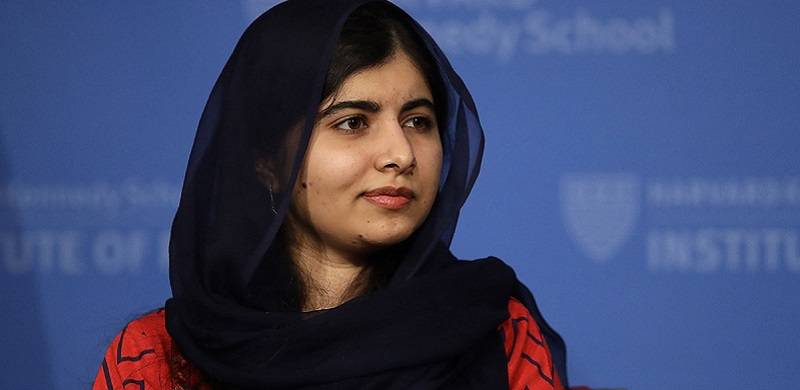
Nobel laureate and girls rights activist Malala Yousafzai has reiterated her belief that women should have the right to choose what they wear, be it a burqa or a bikini, in an essay titled 'Please stop telling us how to dress'.
"Whether a woman chooses a burqa or a bikini, she has the right to decide for herself. Come and talk to us about individual freedom and autonomy, about preventing harm and violence, about education and emancipation. Do not come with your wardrobe notes," Malala urged.
In an essay written on Podium, Malala recounted the many instances throughout her young life that the Nobel laureate had been criticized from what she wore.
"Years ago I spoke against the Taliban forcing women in my community to wear burqas — and last month I spoke against Indian authorities forcing girls to remove their hijabs at school. These aren’t contradictions — both cases involve objectifying women. If someone forces me to cover my head, I will protest. If someone forces me to remove my scarf, I will protest," Malala captioned in her Instagram linking to the article.
Later, while at Oxford, a photo of her wearing a jacket, jeans and a headscarf went viral.
"I said nothing. I felt no obligation to defend myself or meet anyone’s expectations of me," Malala affirmed.
Malala's essay comes on the eve of International Women's Day, and on the heels of various bans and regulations worldwide policing what women wear, from Muslim and Sikh students in Karnataka told to take off their religious garb, to various bans on the hijab and France.
"Whether a woman chooses a burqa or a bikini, she has the right to decide for herself. Come and talk to us about individual freedom and autonomy, about preventing harm and violence, about education and emancipation. Do not come with your wardrobe notes," Malala urged.
In an essay written on Podium, Malala recounted the many instances throughout her young life that the Nobel laureate had been criticized from what she wore.
"Years ago I spoke against the Taliban forcing women in my community to wear burqas — and last month I spoke against Indian authorities forcing girls to remove their hijabs at school. These aren’t contradictions — both cases involve objectifying women. If someone forces me to cover my head, I will protest. If someone forces me to remove my scarf, I will protest," Malala captioned in her Instagram linking to the article.
Later, while at Oxford, a photo of her wearing a jacket, jeans and a headscarf went viral.
"Some people were shocked to see me out of the traditional shalwar kameez I wore for much of my early life. They criticised me for being too Western and claimed I had abandoned Pakistan and Islam.
"Others said my scarf was a symbol of oppression and I should take it off, as if I could not be fully emancipated until I erased all traces of my ethnicity and faith," Malala wrote.
"I said nothing. I felt no obligation to defend myself or meet anyone’s expectations of me," Malala affirmed.
Malala's essay comes on the eve of International Women's Day, and on the heels of various bans and regulations worldwide policing what women wear, from Muslim and Sikh students in Karnataka told to take off their religious garb, to various bans on the hijab and France.

